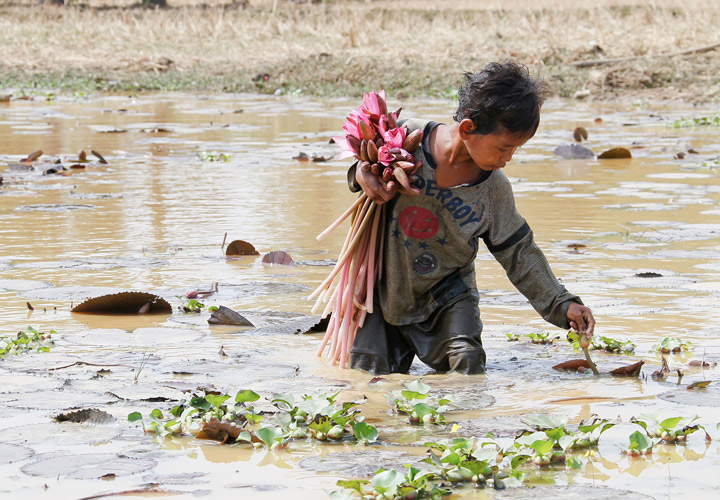TORONTO – A new poll finds that a majority of Canadians say it’s easy to turn a blind eye to child labour in developing countries, despite the fact that many feel conflicted about how they may be fueling the tragedy.

According to an Ipsos Reid survey released Tuesday, 85 per cent of residents in Manitoba and Saskatchewan, 77 per cent of Atlantic Canadians, 75 per cent of Quebecers and 73 per cent of Ontarians said that it’s easy to ignore child slavery worldwide.
Many, however, also said they are also prepared to take action against child labour.
“…Canadians want options to protect children in other countries from exploitation, just like children in Canada should be protected,” said Cheryl Hotchkiss, senior advocacy manager, World Vision Canada.
Last month, another poll also commissioned by World Vision found that a growing number of Canadians were willing to pay more money for products that are free of child labour and that on average, they would pay 23 per cent more to guarantee a purchase is child-labour free—double the amount they said they were willing to pay a year ago.
READ MORE: Canadians willing to ‘pay extra’ for products free of child labour, poll shows
The poll was commissioned shortly after a garment factory collapsed in Bangladesh, killing more than 1,100 textile workers in April. The disaster sparked debate worldwide about retail supply chains and ethical consumerism.
The survey also found many Canadians misjudged the scale of child slavery worldwide. On average, many estimated that 12.5 million children worldwide are doing hazardous work. The International Labour Organization estimates that more than 115 million children around the world are doing work that is “damaging their bodies, minds and well-being.”
- ‘Shock and disbelief’ after Manitoba school trustee’s Indigenous comments
- Canadian man dies during Texas Ironman event. His widow wants answers as to why
- Several baby products have been recalled by Health Canada. Here’s the list
- ‘Sciatica was gone’: hospital performs robot-assisted spinal surgery in Canadian first
“Canadians haven’t yet grasped the shocking scale of child labour worldwide,” said Hotchkiss. “Their estimate of how many children toil in dirty, dangerous and degrading jobs was nine times lower than reality.”
The poll also found that a majority of Canadians did not know it was possible to purchase fair trade products such as clothing, jewelry, wine, flowers, seafood and produce.
When given a list of items, 68 per cent of Canadians were most likely to believe that coffee is available as a fair trade product, while only half know chocolate is also available with this ethical certification.
According to UNICEF, 22 000 children die every year in work related accidents and 73 million working children are less than 10 years old.
*These are some of the findings of an Ipsos Reid survey conducted between May 10 and 17, 2013, in which a sample of 1,924 Canadian adults was interviewed online. The survey is accurate to within +/- 2.5 percentage points had all Canadians adults been polled.




Comments